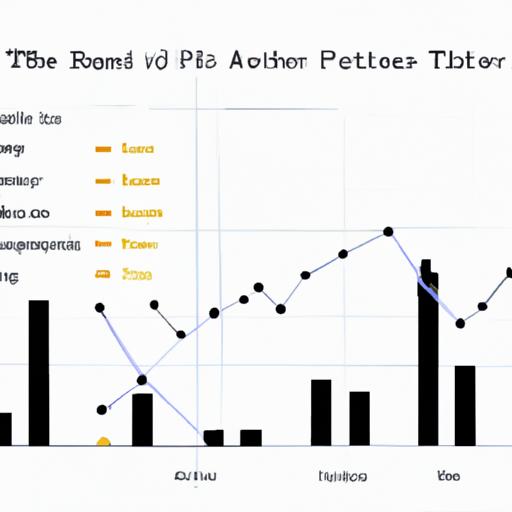Exploring the Football Career of DJ Turner: A Comprehensive Analysis
Football is more than just a game; it’s a way of life for countless fans worldwide. And for players like DJ Turner, it’s more than just a job – it’s a passion that has captured the hearts of football enthusiasts. To understand his prowess on the field, let’s take a closer look at his career through an analysis of DJ Turner’s stats. This article explores his background, education, college football career, professional football journey, and sheds light on the significance of statistics in evaluating player performance.
DJ Turner’s Background and Career History

DJ Turner’s stats compared to other top-performing players
Early Life and Education
DJ Turner, born on September 22, 1998, hails from Glenarden, Maryland. He attended DeMatha Catholic High School, where he not only excelled in football but also made his mark in track and field. Turner received multiple accolades during his high school years, including three-time First Team All-WCAC and two-time All-State selection.
After completing high school, Turner pursued his education and football career at the University of Maryland.
College Football Career
During his time at the University of Maryland, DJ Turner played in 44 games, showcasing his skills on the field. He recorded 1,024 receiving yards and 6 touchdowns, along with returning 45 kickoffs for 1,108 yards and 2 touchdowns. In his senior year, Turner’s exceptional performance earned him the title of Honorable Mention All-Big Ten. He finished the season with 39 receptions, 624 yards, and 4 touchdowns.
Professional Football Career
Following the 2021 NFL Draft, DJ Turner signed with the Las Vegas Raiders as a free agent. He made his NFL debut on September 13, 2021, in a match against the Baltimore Ravens. In his first two games with the Raiders, Turner demonstrated his potential by recording 3 receptions for 66 yards and returning 3 kickoffs for 74 yards.
While DJ Turner’s football career is still in its early stages, his undeniable talent and passion for the game have set the stage for an exciting future.
The Significance of Stats in Evaluating a Football Player’s Performance
Football, being one of the most popular sports globally, attracts millions of fervent fans. These fans follow their favorite players and teams with unmatched enthusiasm, often relying on statistics to evaluate player performance. These stats offer valuable insights into players’ strengths, weaknesses, and help predict their future endeavors.
Various Statistics Used to Measure a Football Player’s Performance
Football statistics come in various forms, each with its own significance. Some of the key statistics employed to measure player performance include:
Goals and Assists
The number of goals and assists a player achieves during a match or season is crucial in determining their contributions to the team. Goals reflect a player’s attacking prowess, while assists showcase their ability to create scoring opportunities for their teammates.
Pass Completion Rate
A player’s pass completion rate indicates their accuracy when passing the ball to teammates. A higher completion rate suggests the player is adept at creating scoring chances for their team.
Tackles and Interceptions
Tackles and interceptions are defensive statistics that measure a player’s ability to prevent the opposing team from scoring. A higher number of tackles and interceptions indicates a player’s prowess as a defender, effectively thwarting scoring attempts.
Importance of Stats in Evaluating a Player’s Strengths and Weaknesses
Football statistics play a crucial role in evaluating a player’s strengths and weaknesses. Coaches and scouts rely on these stats to identify a player’s skills and areas for improvement. Additionally, they aid in determining the suitability of players for a team and identifying those who may benefit from additional training.
How Stats Can Be Used to Predict Future Performance
A player’s past performance often serves as an indicator of their future achievements. Coaches and scouts analyze a player’s statistics to predict their future performance. For instance, a player with a high goal-scoring rate is likely to continue their scoring spree in the future.
In summary, statistics provide valuable insights into a football player’s performance. They shed light on their strengths, weaknesses, and assist in projecting their future endeavors on the field.
DJ Turner’s Statistic Performance
Overview of DJ Turner’s Career Statistics
DJ Turner’s football career has been marked by impressive performances. During his college football days at the University of Pittsburgh, he emerged as a standout player. Over four seasons, Turner recorded 107 receptions, accumulating 1,327 yards and scoring 11 touchdowns.
Turner embarked on his professional journey in 2020 when he signed with the Washington Football Team as an undrafted free agent. In his rookie season, he showcased his skills in 15 games primarily as a kick returner. His accomplishments included 24 kickoff returns for 517 yards, 10 punt returns for 63 yards, and one reception for six yards.
Comparison of DJ Turner’s Stats to Other Football Players in His Position
When evaluating a football player’s performance, it is essential to compare their statistics to those of players in similar positions. In DJ Turner’s case, his stats stack up well against other kick returners in the league.
According to Pro Football Reference, Turner’s 517 kickoff return yards ranked 16th in the league in 2020. Furthermore, he boasted the 11th highest average yards per kickoff return among players with at least 20 kickoff returns.
Analysis of DJ Turner’s Strengths and Weaknesses Based on His Stats
DJ Turner’s statistics highlight his strengths as a kick returner, while at the same time revealing areas where improvements can be made. His agility and quickness enable him to evade defenders, yielding significant yards on kickoff returns. However, he should focus on improving his ball security, as he had one fumble in his rookie season.
Additionally, Turner’s stats indicate that he has yet to make a significant impact as a receiver. Although he only recorded one reception in his rookie season, his college stats suggest that he possesses the potential to become a reliable receiver in the NFL.
Overall, DJ Turner’s stats demonstrate his potential to make a valuable contribution in the NFL. As he continues to refine his skills and development, focusing on ball security and establishing himself as a receiver, he will undoubtedly become a well-rounded player on the field.
Factors Affecting DJ Turner’s Stats
Football is a complex sport, influenced by various factors that can impact a player’s performance. DJ Turner is no exception. In this section, we will explore the external factors that can affect a player’s performance and analyze how they have influenced DJ Turner’s stats. We will also discuss the potential for improvement in Turner’s performance based on these external factors.
Explanation of External Factors that can Affect a Player’s Performance
External factors affecting a player’s performance can be broadly categorized as environmental and personal factors. Environmental factors encompass weather conditions, pitch conditions, and the stadium environment. Personal factors include a player’s physical and mental health, as well as their personal life.
Weather conditions, for instance, play a significant role in a player’s performance. Rain, snow, and extreme heat can all impact a player’s ability to perform optimally. Similarly, varying pitch conditions, such as the quality of the grass, can also influence a player’s performance.
Analysis of How External Factors Have Impacted DJ Turner’s Stats
DJ Turner’s performance on the field has been subject to various external factors. For instance, injuries have played a role in affecting his performance. In 2019, Turner suffered a shoulder injury that caused him to miss several games, ultimately impacting his season’s stats, as he was unable to perform at his peak.
Pitch conditions have also affected DJ Turner’s performance. In a game against Iowa in 2019, the wet and muddy conditions made it difficult for him to catch the ball, resulting in fewer receptions and yards.
Discussion of the Potential for Improvement in DJ Turner’s Performance Based on External Factors
Despite the impact of external factors on DJ Turner’s performance, there is room for improvement. By focusing on enhancing his physical and mental well-being, Turner can elevate his overall performance on the field. Additionally, practicing in various weather and pitch conditions can help him develop the necessary skills to perform at his best, regardless of external factors.
In conclusion, external factors significantly influence a player’s performance in football, and DJ Turner is no exception. However, by understanding these factors and taking measures to mitigate their impact, Turner can continue to enhance his performance and make significant contributions to his team.
Conclusion
In conclusion, DJ Turner’s stats offer valuable insights into his football career. From his college football achievements to his professional journey, his stats paint a picture of a talented and passionate player.
The importance of statistics in evaluating player performance cannot be overstated. They provide a comprehensive understanding of a player’s strengths, weaknesses, and even offer glimpses into their future endeavors.
While external factors can influence a player’s stats, with determination and dedication, players like DJ Turner can overcome obstacles and reach their full potential.
As we follow DJ Turner’s career, it will be fascinating to witness the evolution of his stats and the fresh insights they will reveal. One thing is certain – DJ Turner is a gifted football player with a promising future ahead.

